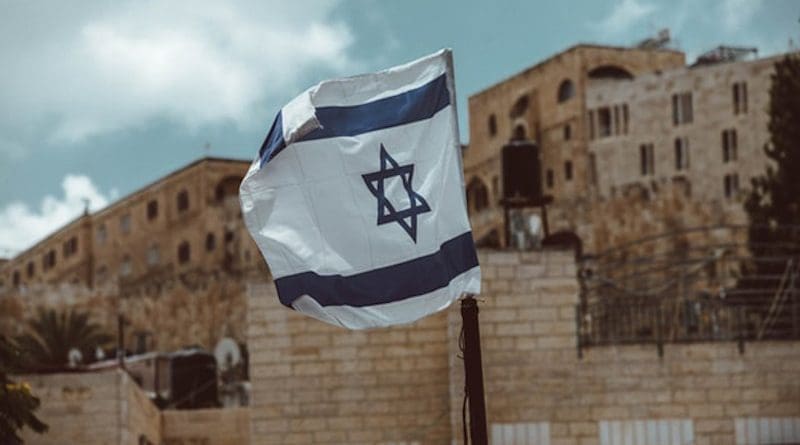Israel’s Trilemma – OpEd
By Haizam Amirah-Fernández*
A trilemma occurs when three elements cannot exist at the same time. Israel has been living in one of those trilemmas for more than half a century. Despite the apparent complexity of the conflict between Israelis and Palestinians, the bottom-line boils down to a simple explanation: Israel cannot at the same time be a Jewish state, have a democratic character and maintain control over all the territories and populations it now dominates. Ethno-religious segregation, recurrent outbreaks of violence and the deterioration of Israel’s international image are direct results of the lack of resolution of this trilemma.
Of the three elements that successive Israeli leaders have sought to make compatible, only two can exist at the same time. If Israel wants to be a Jewish and democratic state, it will have to end the occupation. If it wants to be democratic and control all the territories, it will have to move from being a Jewish state to becoming a bi-national and egalitarian one. Should it choose to remain Jewish and dominate the territories of the West Bank and Gaza, then it cannot be a democratic state. It is not democratic for all its citizens, both Jews and Arabs, nor for the occupied Palestinian populations, nor for a growing part of international public opinion.
Each new outbreak of large-scale violence, such as the one we are seeing these days in Gaza and Israel, is a reminder that the Israeli-Palestinian conflict is still far from being resolved. The conflict has not vanished by way of the subjugation and defeat of some at the hands of others, nor by its loss of relevance in a Middle Eastern agenda plagued by conflicts and wars, nor even by the normalisation agreements between a few Arab countries of the Gulf and Africa with the State of Israel (the so-called Abraham Accords, promoted by Donald Trump and his son-in-law Jared Kushner, under the formula of ‘security and business, but without land in exchange for peace’).
Israel’s trilemma generates increasing contradictions, frustration and resistance. Extreme violence (to which attention is paid from the outside every time there is a new war) and everyday violence (resulting from the occupation and the existence of different laws for different human groups, but which is more difficult to see from the outside) are the product of this macabre triangle that has been dragging on for decades. The same one that feeds the extremes and the merchants of hatred in both camps. It also serves selfish leaders, haunted by corruption and lacking a vision for the future for their respective peoples, to play their opportunistic games in order to extend their stay in office.
The events of the past few days, with the eruption of inter-communal violence in Israel’s mixed cities, where Jewish and Arab Israeli populations live, should set off alarm bells that the country’s leaders would do well to heed. The lynchings, burning of homes and places of worship, and the marches of settlers and Jewish extremists chanting ‘death to the Arabs’ are reminders of how fragile coexistence is when one group is above the other. Although Israeli Arabs enjoy rights that do not exist in neighbouring Arab autocracies, they are still second-class citizens within the State of Israel.
Violent conflict between Israel and the Hamas movement is all too familiar (occurring in 2009, 2012, 2014 and 2021) and follows the macabre playbook of highly unequal attacks, counterattacks and collective punishments against the Palestinian and Israeli populations. However, it is far less common for the conflict to spill over into Israel. It has been Benjamin Netanyahu’s policies that have intensified the grievances felt by Arab Israeli citizens. In order to remain in office as Prime Minister, Netanyahu has opportunistically supported settler and far-right movements, promising the annexation of Palestinian territories, supporting the passage of the Jewish people’s nation-state law in 2018 and causing provocations such as those seen in East Jerusalem during the past month of Ramadan.
In the face of the increasingly evident impossibility of achieving peace between Israelis and Palestinians through the two-state solution, more and more voices are calling for a human rights and human security approach. This involves getting rid of the moribund peace process and focusing on the protection of rights and accountability when they are violated, as should be the case in any state worthy of calling itself democratic. If Israel continues to choose to maintain Jewish supremacy between the Mediterranean Sea and the Jordan River through a regime of segregation and occupation, that choice has a name, and it is ‘apartheid’.
*About the author: Haizam Amirah-Fernández, Senior Analyst for the Mediterranean and Arab World at the Elcano Royal Institute and Professor of International Relations at IE University | @HaizamAmirah
Source: This article was published by Elcano Royal Institute. An earlier version of this article was published on 18 May 2021 in El País. Spanish version: El trilema de Israel.

